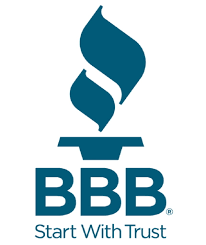
Giving After a Tragedy Southfield, MI – October 2, 2017 – After a terrible and very public tragedy such as a mass shooting, people want to help in any way possible, and that often means contributing to fundraisers to help the survivors and the families of the victims. Sadly, scammers often take advantage of these moments of vulnerability to deceive donors. In addition, there are often campaigns set up by well-meaning individuals who may or may not be directly connected to the tragedy.
BBB Wise Giving Alliance urges donors to give thoughtfully and avoid those seeking to take advantage of the generosity of others. Here are BBB WGA’s tips for trusted giving:
1. Thoughtful Giving: Take the time to check out the charity to avoid wasting your generosity by donating to a questionable or poorly managed effort. The first request for a donation may not be the best choice. Be proactive and find trusted charities that are providing assistance. Visit Give.org to verify if a charity meets the BBB Standards for Charitable Accountability.
2. Crowdfunding: Keep in mind that some crowdfunding sites do very little vetting of individuals who decide to post for assistance after a tragedy or a disaster, and it is often difficult for donors to verify the trustworthiness of crowdfunding requests for support.
3. Respect for Victims and Their Families: Organizations raising funds should get permission from the families to use either the names of the victims and/or any photographs of them. Some charities raising funds for the victims of previous shootings did not do this and were the subject of criticism from victims’ families.
4. State Government Registration: About 40 of the 50 states require charities to register with a state government agency (usually a division of the State Attorney General’s office) before they solicit for charitable gifts. If the charity is not registered, that may be a significant red flag.
5. How Will Donations Will Be Used?: Watch out for vague appeals that don’t identify the intended use of funds. For example, how will the donations help victims’ families? Also, unless told otherwise, donors will assume that funds collected quickly in the wake of a tragedy will be spent just as quickly. See if the appeal identifies when the collected funds will be used.
6. What if a Family Sets Up Its Own Assistance Fund? Some families may decide to set up their own assistance funds. Be mindful that such funds may not be set up as charities. Also, if collected monies are received and administered by a third party such as a bank, CPA, or lawyer this will help provide oversight and ensure the collected funds are used appropriately (paying for funeral costs, counseling, and other tragedy-related needs).
7. Advocacy Organizations: Tragedies that involve violent acts with firearms can also generate requests from a variety of advocacy organizations that address gun use. Donors can support these efforts as well, but note that some of these advocacy groups are not tax exempt as charities. Also, watch out for newly-created advocacy groups that will be difficult to check out.
8. Online Caution: Never click on links to charities on unfamiliar websites or in text messages or email. These may take you to a look-alike website where you will be asked to provide personal financial information, or may download harmful malware onto your computer. Don’t assume that charity recommendations on social media have already been vetted.
9. Financial Transparency: After funds are raised for a tragedy, it is even more important for organizations to provide an accounting of how funds were spent. Transparent organizations will post this information on their websites so that anyone can find out without having to wait until the audited financial statements are available sometime in the future.
10. Newly-Created v. Established Organizations: This is a personal giving choice, but an established charity will more likely have the experience to quickly address the circumstances and have a track record that can be evaluated. A newly-formed organization may be well-meaning, but will be difficult to check out and may not be well managed.
11. Tax Deductibility: Not all organizations collecting funds to assist after a tragedy are tax exempt as charities under section 501(c)(3) of the Internal Revenue Code. Donors can support these other entities, but keep this in mind if they want to take a deduction for federal income tax purposes. In addition, contributions that are donor-restricted to help a specific individual or family are not deductible as charitable donations, even if the recipient organization is a charity.
###
ABOUT BBB WISE GIVING ALLIANCE: BBB Wise Giving Alliance is a standards-based charity evaluator that seeks to verify the trustworthiness of nationally-soliciting charities by completing rigorous evaluations based on 20 holistic standards that address charity governance, effectiveness reporting, finances, fund raising, appeal accuracy, and other issues. Learn more about the 20 BBB Charity Standards and about local charity review at local Better Business Bureaus at Give.org.
About Better Business Bureau Serving Eastern Michigan and the Upper Peninsula Better Business Bureau Serving Eastern Michigan and the Upper Peninsula is a non-profit organization with the purpose of promoting trust in the marketplace by assisting in the protection of consumers and businesses from fraud and unethical business practices. In addition to its recognized dispute resolution services, BBB maintains business reviews on the customer service history of more than 85,000 local businesses and provides consumer education materials on numerous topics. BBB provides its services free to the public and its service territory stretches across Eastern Michigan from Ann Arbor through Metropolitan Detroit, Lansing, Flint, upward to Alpena, and covers the entire Upper Peninsula of the state.












